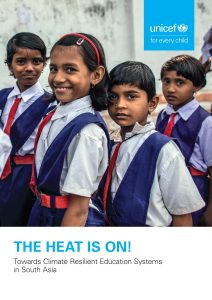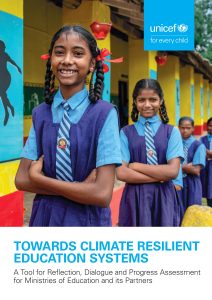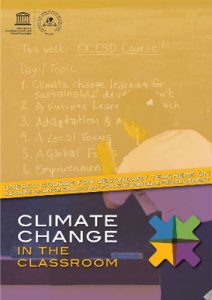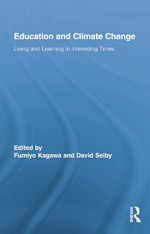Sustainability Frontiers members hold that much present climate change education falls short of addressing the depth, severity and urgency of the climate change crisis. They are critical of the current preoccupation, especially within formal education, upon scientific understandings of global warming, technological fixes and superficial attitudinal and behavioural change, allied with the characterization of the climate change crisis in terms of its overtly presenting cause, that is as a CO2 problem.

They are critical, too, of the consequent near-monopolization of the climate change education agenda by a limited range of disciplines (in particular, geography, science and technology). To counteract these tendencies, Sustainability Frontiers is developing school age, tertiary and community education multi-disciplinary learning approaches and programs that challenge the learner to consider the climate breakdown emergency as a problem arising out of the human condition, i.e. uncritical adherence to economic growth and consumerism, a disconnect from the natural world and the web of life, and an outcome of exploitation and violence. While by no means dismissing the scientific and technological aspects of climate change, more weighting is placed on climate breakdown as symptom of cultural, social, economic, ethical and psychological dysfunction, as well as spiritual debility, particularly, but not exclusively, within economically privileged areas of the world.
The Sustainability Frontiers team of David Selby and Fumiyo Kagawa published the first comprehensive treatment of climate change learning in 2010, the path finding, prescient and much cited Education and Climate Change: Living and Learning in Interesting Times (details below).
Projects/Consultancies
- The Geneva EiE Hub Flagship Report on Climate Change and Education in Emergencies (EiE) (2023)
- GPE Building a Framework for Climate-smart Education Systems (2022)
- Climate Change Education Regional Study, South Asia (2020-2021)
- Review of National Curricula to Integrate Disaster Risk Reduction in The Gambia (2021)
- St. Vincent & The Grenadines Climate Change Mitigation and Adaptation and Disaster Risk Reduction Curriculum Consultancy (2019-2020)
- UNESCO Teacher Educator Course, Climate Change Education for Sustainable Development (2011)
Key Publications
- Fumiyo Kagawa and David Selby. (2023). Leveraging Education in Emergencies for Climate Action. No Time to Lose: Commitment to Resilience and Learning Now. Geneva Global Hub for Education in Emergencies: Geneva.
- Fumiyo Kagawa with David Selby. (2022). Quality Education with the Planet in Mind: Towards a Climate-Responsive and Nature-Positive Framework for the Education System of Lower Income Countries. The Global Partnership for Education, Washington DC, Paris, Brussels.
- Fumiyo Kagawa. (2022). The Heat is On!: Towards Climate Resilient Education Systems in South Asia. UNICEF Regional Office for South Asia: Kathmandu. [Also other eight publications from the Heat is On! series are available. Click here]
- David Selby & Fumiyo Kagawa. (2018). Teetering on the Brink: Subversive and Restorative Learning in Times of Climate Turmoil and Disaster, Journal of Transformative Education, 16 (4), 302-322.
- David Selby & Fumiyo Kagawa. (2013). Climate Change in the Classroom: UNESCO Course for Secondary Teachers on Climate Change Education for Sustainable Development. UNESCO: Paris. [In Portuguese click here.]
- David Selby & Fumiyo Kagawa. (Eds). (2010). Education and Climate Change: Living and Leaning in Interesting Times. Routledge: New York.
- David Selby. (2011). ‘Education for Sustainable Contraction as Appropriate Response to Global Heating’, Journal for Activist Science and Technology Education, vol.3, no.1, 1-14.




